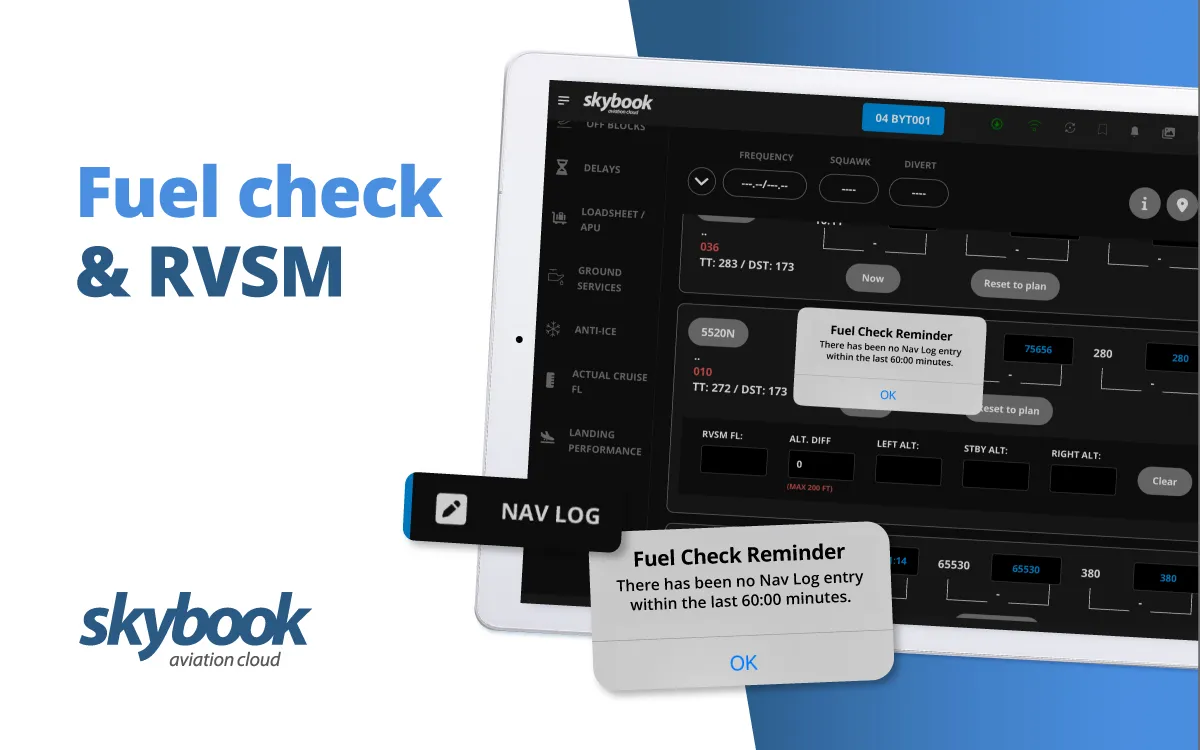
Nav Log fuel check & RVSM
When a flight touches down, the work doesn’t end...
Post-flight reporting gives flight operations teams the tools to stay compliant, spot trends and drive improvements.
Utilising the data-driven EFF configured to your needs. Done properly, it ticks every regulatory box while converting routine admin into a powerful data resource for your operation.
Here are some best practices to help operators get the most from their post-flight data management using skybook.
Looking at a single flight in isolation only tells part of the story…
By comparing post-flight data across 30, 60, or 90-day periods, means operators can spot meaningful analytical trends such as changes in fuel burn, recurring delays or variations in on-time performance.
Delivering the visibility teams need to take action sooner, and prevent avoidable costs!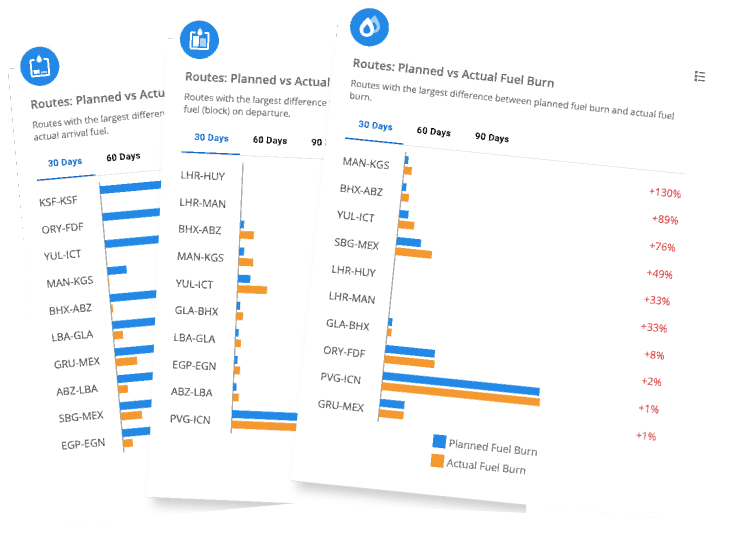
Post-flight records should be archived in a way that meets regulatory and safety obligations. From ETOPS requirements and crew duty logs, to flight documents and safety records.
It is best practice is to use a structured, digital flight records storage where reports are securely stored, easily retrievable and always ready for audits!
With skybook, operators can go one step further: sector data can be locked when required.
For example, in the event of an incident, flight information is preserved in its original state, with a full audit trail, so nothing can be altered or lost.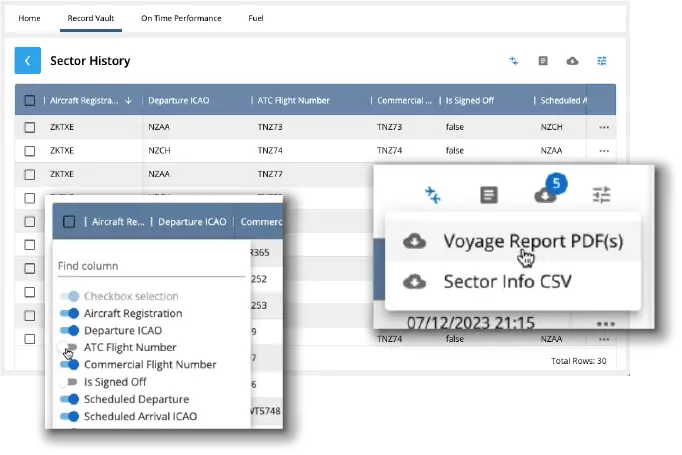
Manual handling of reports can be prone to delays and errors…
Therefore, as soon as a flight is signed off in the EFB application, skybook can automatically send Voyage Report (Journey Log) PDFs to your chosen email recipients.
This not only saves time, but also creates a reliable email audit trail, providing a safeguard against missing or misplaced reports.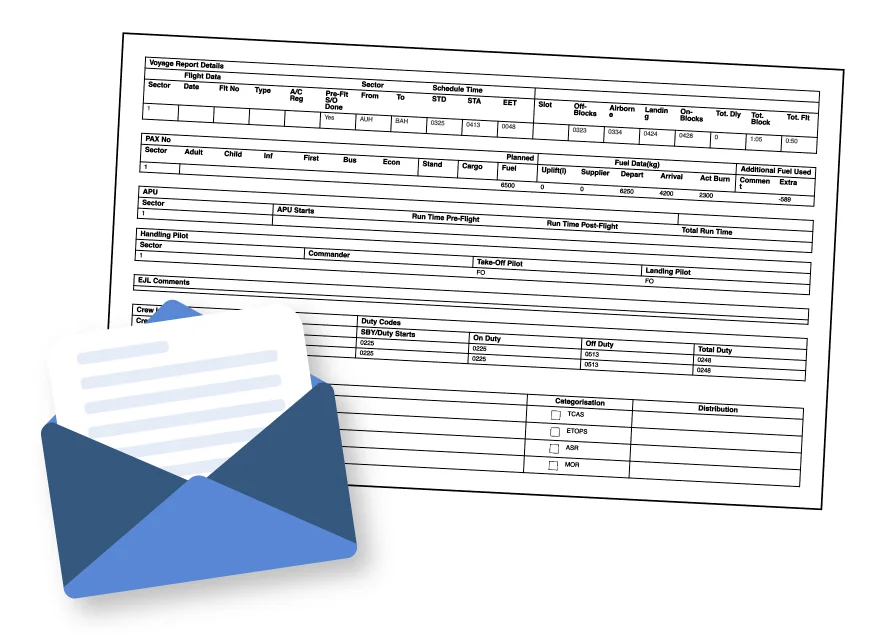
Quick access to an archive of Operational Flight Plans streamlines post-flight data management for both crews and managers.
An industry standard is to ensure teams can access and download OFPs when needed. Whether for crew debriefings, compliance checks, or post-flight performance reviews.
This eliminates bottlenecks when investigating operational questions and strengthens long-term record keeping.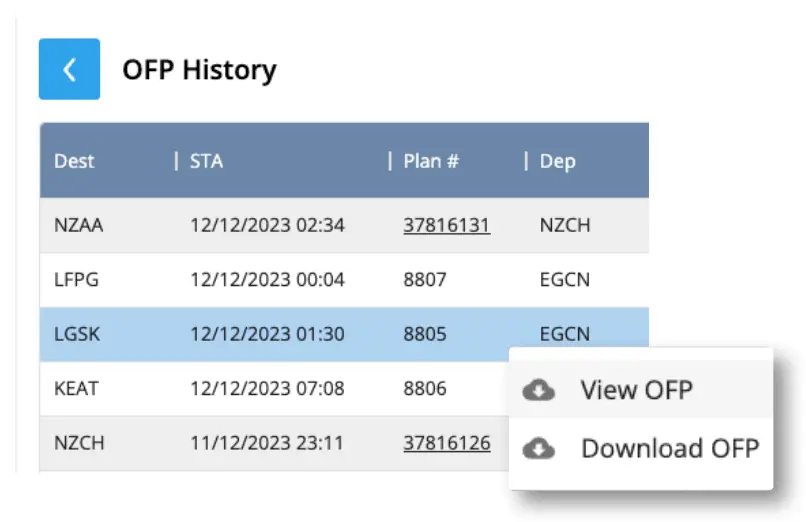
Each operator has its own way of working, which is why post-flight reports and data management need to be just as flexible!
In skybook, teams can customise the flight history grid data to match their dispatch information and display only the information that is most relevant to them.
This effective strategy cuts through data noise, ensuring that the post-flight review process stays focused and aligned with operational priorities.
Knowing when and how decisions are made is key.
That’s why we provide clear visibility of time-stamped updates across the whole voyage; from pre-flight dispatch through to post-flight sign-off, for a complete flight phase audit log.
This level of visibility gives operators confidence in the integrity of their records, while also helping to reconstruct events if discrepancies or incidents arise.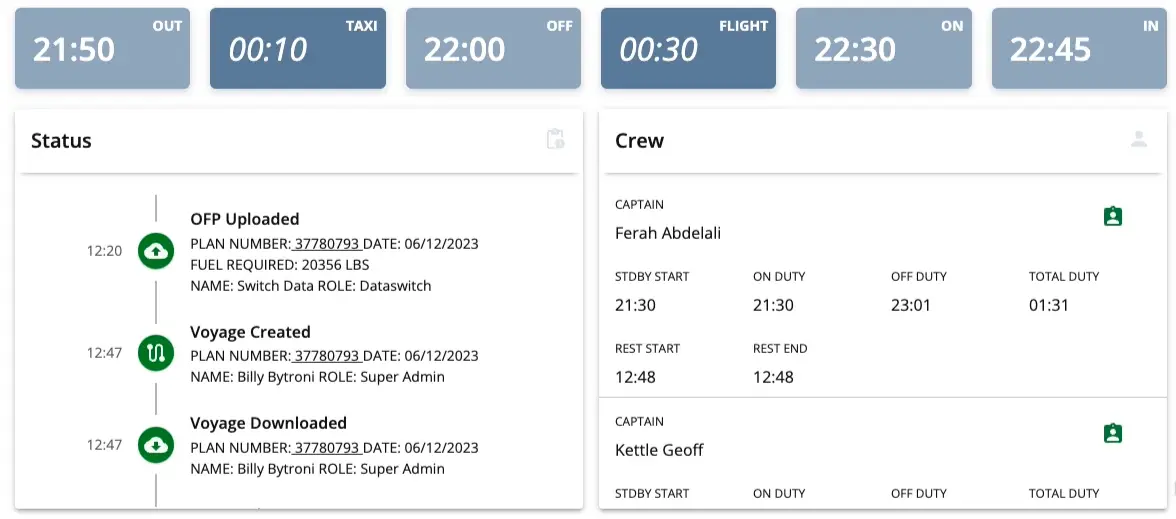
Fuel management is one of the most critical post-flight checks.
Comparing planned vs. actual fuel on arrival provides direct insight into fuel efficiency, the accuracy of flight planning and whether your systems are delivering the reliable information they promise. It also helps highlight any potential operational issues early.
Used consistently, this method can highlight opportunities for cost savings and more sustainable flying.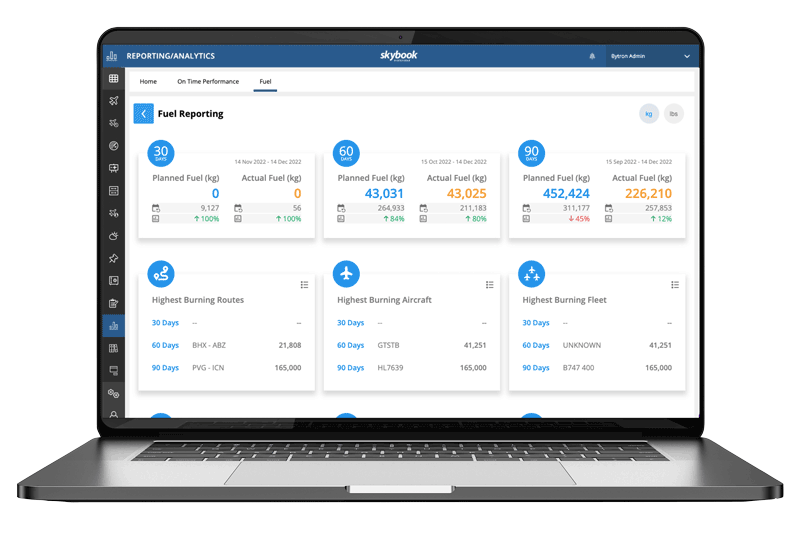
Lastly, a smart approach to post-flight reporting is ensuring all data lives in one place.
With skybook, operators can seamlessly sync everything from the EFB application, including:
Having this data consolidated ensures operators always have a single source of truth. Vital for audits, investigations and long-term analysis.
Admin users can also edit flight data such as flight times or fuel data if there was any correct data input from the flight crew. Of course, this includes a full audit trail of changes for compliance purposes.
A complete sector summary is also collated as a pdf for reporting purposes.
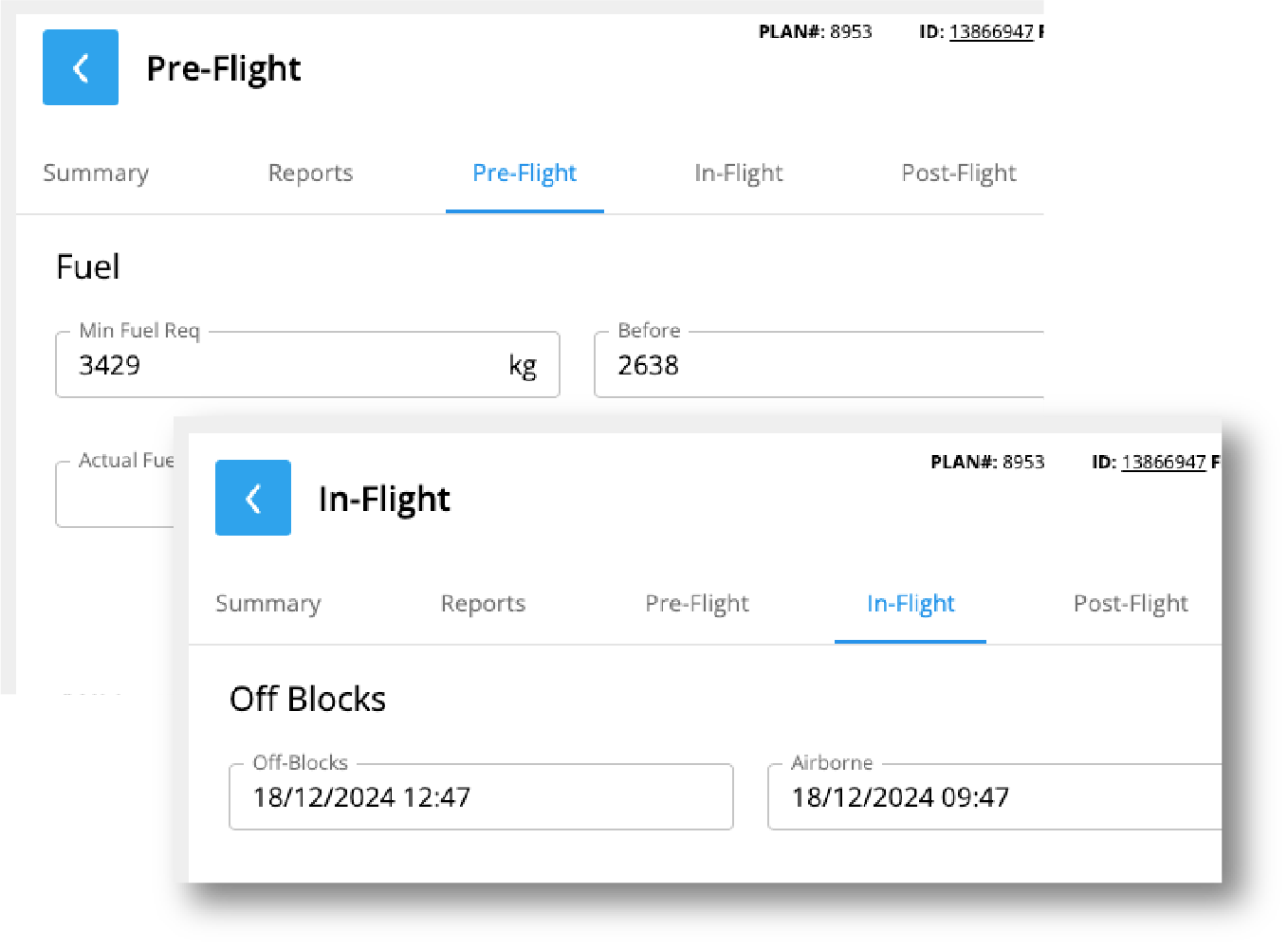
Post-flight reporting is no longer just about journey logs.
By adopting best practices like trend comparisons, customised views, and automated reporting; operators can transform post-flight data into a powerful driver of efficiency, compliance and continuous improvement.
Schedule a skybook demo today and discover how effortless it is to get the post-flight data you need to drive operational improvements.